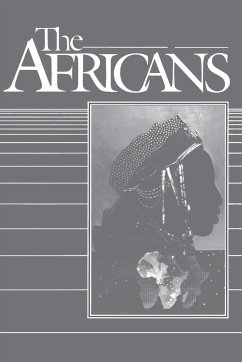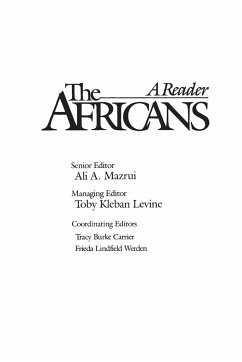
The Psychological Impacts of Apartheid on Black South Africans

PAYBACK Punkte
0 °P sammeln!
Seminar paper from the year 2012 in the subject History - Africa, grade: 1,5, University of Education Freiburg im Breisgau, language: English, abstract: Apartheid was a highly colonial system. Its main issue was not so much the segregation of races - as the name suggests -, but rather the severe inequality that came with racial classification and segregation. Because Whites believed themselves to be superior to people of colour, they reserved for themselves rights and privileges which were not granted to members of other racial groups. Consequently, the life of Blacks (Africans, Coloureds, and...
Seminar paper from the year 2012 in the subject History - Africa, grade: 1,5, University of Education Freiburg im Breisgau, language: English, abstract: Apartheid was a highly colonial system. Its main issue was not so much the segregation of races - as the name suggests -, but rather the severe inequality that came with racial classification and segregation. Because Whites believed themselves to be superior to people of colour, they reserved for themselves rights and privileges which were not granted to members of other racial groups. Consequently, the life of Blacks (Africans, Coloureds, and Indians) was marked with restrictions, prohibitions, and ill-treatment.Recognizing Apartheid as a form of colonialism, this paper espouses the argument that its legacy is not only one of physical or economic sequelae, but also one of psychological damage on the former oppressed. It attempts to prove that any form of ill-treatment leaves some sort of psychological impact on the person concerned, which then leads to a change in behaviour as an outward expression of his or her changed inner state. For this purpose, this paper will start out by giving a short introduction to the psychology of oppression. Next, it will look at the formation of the white South African mind-set during Apartheid, as the foundation and cause of oppression, leading up to the main subject of this paper. Finally, chapter three will deal with the kind of treatment black South Africans experienced under the rule of the National Party and what psychological research has found out about the possible affects of such treatment.Since most of the research done on Black psychology and the psychology of oppression stems from overseas countries such as the USA, the literature used in this paper has a wide range. Nevertheless, it was endeavoured to continuously link the existing research to the South African context and situation. A recent newspaper article on the importance of teaching struggle history at schools and a critical discussion on interracial marriages in modern South Africa first triggered my interest in studying the mind-set of white South Africans during Apartheid. This eventually lead me to my research question with the aim of wanting to find out more about the psychological impact this kind of mind-set had on the country's oppressed population.













